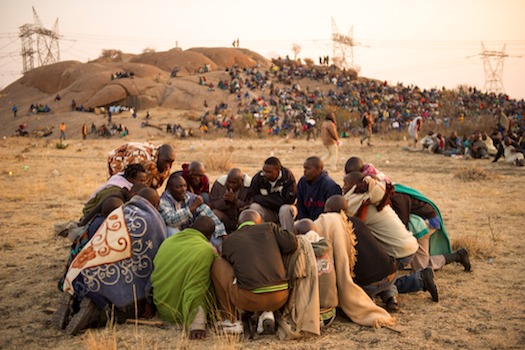- About
- Topics
- Story
- In-Depth
- Picks
- Opinion
- News
- Donate
- Signup for our newsletterOur Editors' Best Picks.Send
Read, Debate: Engage.
| July 30, 2018 | |
|---|---|
| topic: | Good Governance |
| tags: | #South Africa, #Nelson Mandela, #corruption, #housing shortage, #ANC |
| located: | South Africa |
| by: | Shasha Seakamela |
The ANC under Nelson Mandela has inherited a muddled legacy: the most developed economy in Africa, coupled with major socio-economic problems. But since that time, has the situation has changed?
It is not to be denied that South Africa has made major strides since becoming a full democracy in 1994. But failure to implement plans that are meant to bring about economic progression may be construed to mean that in many ways, South Africa is now going backwards. The recent land occupations and protests over housing shortages in South Africa have put the spotlight on the problem and the role of the government in providing it. There are questions to be asked to what extent this has been fuelled by the expropriation of land without compensation debate recently in parliament and the opportunism of the Economic Freedom Fighters (EFF) political party. Currently one cannot doubt that millions of people are fed up.
“That is the same thing other people will say, while those who are landless are suffering. The municipalities are not going to build houses, so people are working towards that on their own. Land expropriation without compensation had to be sped up to prevent more land grabs. The EFF's land ‘occupation’ programme was adopted at its first assembly in 2014, and remains a permanent fixture for the party,” said EFF Gauteng Mandisa Mashego.
When Nelson Mandela’s African National Congress came into power in 1994 the new government tried to address these issues through various strategies, initially focusing on building houses, then attempting to shift the focus from ‘housing’ to ‘human settlements.’ Through the Reconstruction and Development Program (RDP), first announced in 1994, the South African government has subsidised home-building for citizens. However, over the past few decades, migration into urban areas has rapidly increased while housing has failed to keep the pace.
“Pretty much everyone is convinced that (RDP housing) cannot be done anymore. There’s not enough land. We need a denser scheme, which is how they used to make cities around the world – like in New York or London,” said Alfredo Brillembourg, architect and co-founder of Urban-Think Tank (U-TT).
South Africa’s RDP housing project is the largest government-subsidised housing project in the world – it has delivered an estimated three million units in the past 25 years. But a persistent backlog in issuing title deeds, (estimated to be more than 900 000), diminishes these successes. Land ownership in South Africa is an emotive issue. So it is not surprising that a persistent title deeds backlog, with some dating back to before 1994, has become a matter ripe for political picking in the run-up to the country’s national elections in 2019.
Currently across the country people, who are angry at what they perceive as unfulfilled promises by politicians and corruption with the RDP housing programme, are occupying both public and private land illegally. Unemployed and low-income earners, who have applied and not yet received RDP homes 25 years later, are questioning the credibility of the government’s promises of free housing. As a double-edged sword, the housing backlog means the poorest of the poor may not be alive to experience the joy of becoming homeowners.
“There has to be order in that market because these people have (had their dignity impaired) already. Their rights have been abused over time. They do not have shelter over their heads – understandable. But we have to work in such a way that there is order, there is stability so that no interests must suppress the interests of the other,” said MEC for Human Settlements Dikgang Uhuru Moiloa.
The ANC government continues to condemn poor communities, who can ill afford the costs of commuting from the townships to the city centre to work or seek work. Most importantly, there needs to be a coherence in addressing needs and, aligning the resources to release land, provide infrastructure and build houses and communities with access to jobs and amenities.
There is insufficient land to meet the needs of the rapidly urbanising towns and cities. The time is ripe for a housing summit in the country to bring a sense of transparency and rationality. Recent events seem to imply that the government may be resorting to short-term measures to pacify anger and protest. But a major overhaul of housing policy is what’s actually needed.
By copying the embed code below, you agree to adhere to our republishing guidelines.
